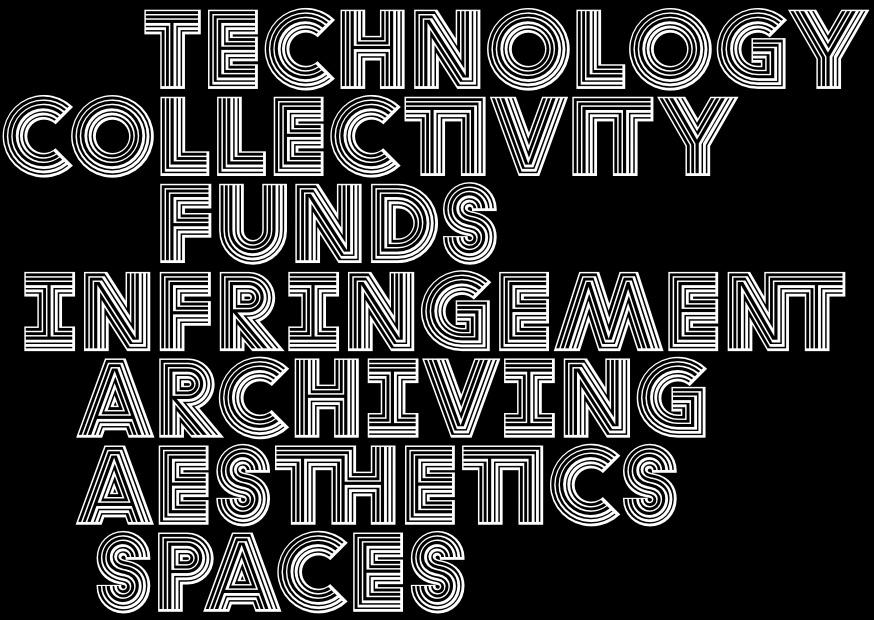UNITED SCREENs.
NEAR EAST, MIDDLE EAST, FAR EAST. CONTEMPLATIONS ON CONTEMPORARY CINEMA
Chapter 2 July 2019–ongoing
Durban International Film Festival (South Africa) 18.–28.07.2019
Young Curators Academy at Herbstsalon (Berlin, Germany) 26.10.–05.11.2019
Carthage Film Festival (Tunis, Tunisia) 26.10.–02.11.2019
Jakarta (Indonesia) August 2020
UNITED SCREENS is an ongoing research project thought in a participatory framework open to interaction, impulses and synergies.
Please write us at abhishek.nilamber@savvy-contemporary.com to get in touch about this project.
Etymology of the term “Orient” :
From Middle English orient, borrowed from Old French orient, from Latin oriens (“rising; as a noun, the quarter where the sun rises, the east, day”), present participle of oriri (“to rise”).
The “Orient” was invented outside the “Orient”. The “Orient“ is defined in the “non-Orient“. The “non-Orient“ then divides, categorises, moulds and remoulds the “Orient“. The “Orient“ is then further categorised into terms like “Near East”, “Middle East”, “Far East”, which begs the questions – “Near” to whom?, In the “Middle” of what? And “Far” from where?
Departing from the readings of Said, Mudimbe and others, this project chapter is based on the premise that this gaze/ perspective manifests also in the domain of cultural distribution or in the practice of distribution of culture, and still, in the ways in which a multiplicity of visual cultures are represented, written about, framed and administered.
Considering that most of the “acknowledged” apparatus for production, validation and conservation of the audio-visual medium is situated in the “non-Orient“, the practitioners of said medium in the “Orient” have been traditionally in a disadvantageous position, when it comes to telling their own stories, in their own way. Additionally, that major capital flows from “non-Orient” studios to the cinema industries of the “Orient”, perpetuates the established cultural hegemony.
At the same time, the “non-Orient”, also serves as a safe space for critical and intellectual media practitioners from the “Orient” to convene. None of this though, is as detrimental to free cinematic expression than the remnants of the colonial censorship/regulations, which the numerous post-colonies haven’t been able to shake off. The factors determining the distribution and exhibition of contemporary audio-visual material is what concerns us also in the second chapter of the project.
How can we strengthen alliances between cultural realities that exist in vulnerable positions, economically, politically, culturally? Between realities often obliged to accept exploitative and exiticising cultural exchanges in order to secure basic survival? Or to be more precise: funding, economic support, cash, liquidity, in exchange of content and images that often end up being inaccurately framed, generically described, or easily reduced to categories or geographies. Realities invited to perform their “otherness”, to present their witness accounts, within white walls, perfect black boxes, and cocktail parties?
UNITED SCREENS.NEAR EAST, MIDDLE EAST, FAR EAST. CONTEMPLATIONS ON CONTEMPORARY CINEMA wants to create a series of programs spread in different locations focusing on issues of funding, archiving, distributing, institution building, law infringing, technology playing, and making alliances. We are looking into organising, in curatorial, operational and logistical collaboration with our friends on and off location, a set of collective think-tanks, or research labs, along with public screenings and exhibitions. Over the course of 2019–2020 the project will take us to Durban/South Africa, Alexandria/Egypt, Khartoum/Sudan (tbc), Tamale/Ghana and Jakarta/Indonesia.
Built at its core on the audiovisual documentations of conversations, the second phase will assemble and add voices to the archive with every intervention, aiming to understand the economic conditions of alternative media practices in a postcolonial context and neo-colonial environments and put to the questions, whether South-to-South networks beyond canonical geographical divisions and instead based on shared interests, scopes and objectives can be a key to overcome contemporary power dynamics in the international film ecosystem. We wonder how technology can be shaped for a sustainable and affordable use to this end.
UNITED SCREENS is an ongoing research project thought in a participatory framework open to interaction, impulses and synergies.
CURATOR Abhishek Nilamber
ASSOCIATE CURATOR Laura Kloeckner
ARTISTIC DIRECTORS Antonia Alampi Bonaventure Soh Bejeng Ndikung
MANAGEMENT Lema Sikod
COMMUNICATIONS Anna Jäger
GRAPHIC DESIGN Elsa Westreicher
Funded by the Arab Fund for Arts and Culture.


